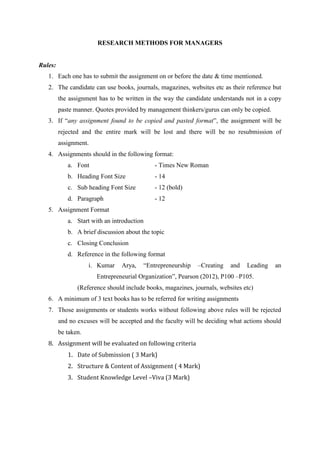The document outlines rules and guidelines for submitting assignments as part of a research methods course for managers. It provides instructions on formatting, structure, referencing, and evaluation criteria for assignments. Students must submit assignments individually on time and are prohibited from direct copying. Assignments will be evaluated based on structure, content, and a viva assessment. The document also provides instructions for a group assignment where students will work in groups to analyze a business problem and submit milestone updates and a final project to be evaluated by faculty.






